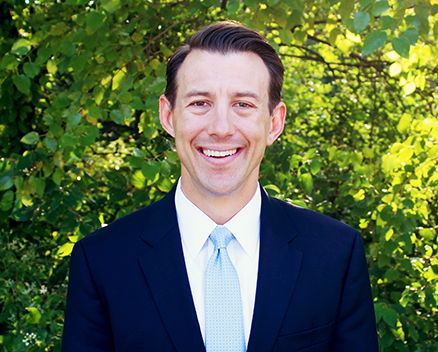From the Desk of Your Executive Director

Dear Brothers,
In 2015, Delta Upsilon embarked on the most ambitious and comprehensive research project of any fraternity to date. We wanted to measure the deep impact of DU membership in a number of critical areas, so we partnered with Dyad Strategies, LCC and launched our first assessment in late February 2016.
Our goal:
- Measure student behaviors, values and attitudes.
- Gauge member growth in a range of areas, including problem-solving, social justice, ethical decision making and conscientiousness during their DU experience.
- Create an understanding of how members experience brotherhood at the chapter level.
- Map individual and chapter growth.
Over the past four years, we have analyzed the data to look for trends that informs our approach in allocating resources to best maximize impact on the undergraduate member. Each year’s data set has allowed us to pinpoint exactly where DU delivers added value over the typical college experience and to continually improve our programs and services.
Let me share some examples of how our assessment has influenced the Fraternity:
- Each year, chapters are provided a report highlighting the areas where it scored well and opportunities for improvement. Chapter officers use this report to build their plans for the year. In fact, one Chapter President used his chapter’s report as a part of his senior portfolio for his academic major. He designed and implemented a set of initiatives focused on improving the areas in which the chapter scored lowest and was able to evaluate his success on the next year’s assessment.
- Our chapter development team tailors our chapter servicing strategies based on the unique needs and priorities of a chapter as indicated in the assessment. We identify a chapter’s area of greatest need, determine the best staff member to work with the chapter, and use a holistic approach to address the needs.
- Our educational programming team makes adjustments to curriculum to ensure all educational activities are aligned with desired organizational outcomes and assessed for effectiveness.
At the outset of this project, we looked forward to the day we’d have four years of data and be able to track a cohort of students through their DU experience. With four years of implementation, we now have Cohort 1 and a picture of how the DU experience impacts our young men from the day they join through graduation. Based on the initial analysis of Cohort 1, we have identified some specific next steps.
- Pilot various structural changes at the chapter level to alleviate declines in affinity and engagement between sophomore and junior year. While brotherhood and affinity decline across time, the sharpest decline happens between sophomore and junior year. This is typically when men move out of the house or finish their term on the Executive Board. We will look to pilot several programs aimed at keeping juniors more engaged.
- Expand access to DUEL. The DU Emerging Leaders Experience has shown to be the Fraternity’s most impactful educational program. The members who participate in this program have greater development in accountability and commitment than their peers. It will be a priority to provide access to this program.
- Look for ways to reinforce Belonging and Informal Accountability in the Associate Member Education Program and Building Better Men Retreats. The Associate Member Education Program has been incredibly successful. It is responsible for significant decreases in Solidarity Brotherhood and Loyalty/Commitment Hazing Motivation over the last four years. Similarly, Building Better Men Retreats have shown promise in decreasing hazing culture within a chapter and improving operations. Belonging and Accountability are two of the most important areas of chapter culture, and we will look to adjust these programs to produce meaningful increases.
Thanks to our assessment efforts, we know more today than we ever have about the DU undergraduate experience. In a time when the fraternity experience is under great scrutiny, we must be able to prove our worth. Our data indisputably articulates the benefits of Delta Upsilon membership. We look forward to continuing to assess the experience and make data driven decisions toward Building Better Men.
Fraternally,
Justin Kirk, Boise State ’00
Executive Director
Delta Upsilon Fraternity and Educational Foundation
